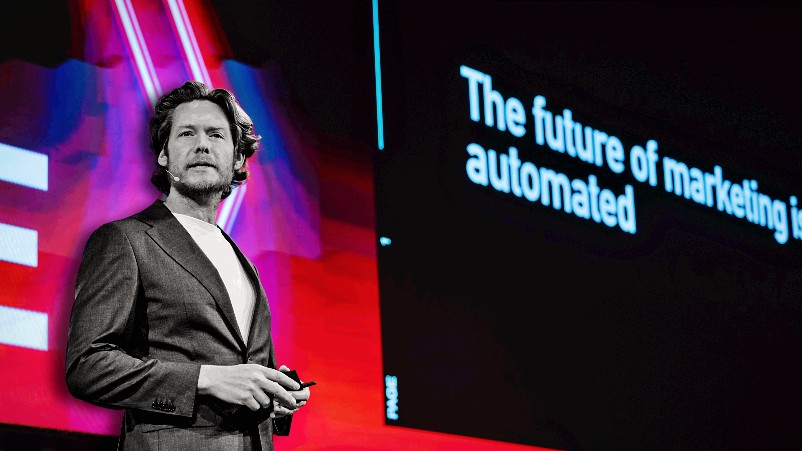Salesforce SVP & CMO, ANZ: AI future already here, retailers moving
Salesforce is centring its entire business around AI and agentic bots. Hence SVP & CMO, ANZ Leandro Perez disagreed strongly with Goodwin’s assessment of a technology at peak hype and dismissal of agentic commerce. Perez reckons it’s “80 per cent there” already and claimed he has spoken with “around 10 top tier Australian retailers” in the last couple of weeks about implementing it, some acting defensively as much as offensively.
“We’ve gone to several conferences now where they bring in an AI futurist, and it’s more controversial to highlight the perils; that AI is not going to work. Most of the marketers here are being told to adopt, to leverage and they are feeling the need to get on board. So [commentary like Goodwin’s] is entertaining, but not that educational,” suggested Perez.
“I would say that personal agents are about 80 per cent of the way there, because people are still in the loop to kick it off,” said Perez, citing agent-to-agent travel bookings, where the human tells an agent to “find a family holiday” is handed a selection of destination deals and is asked by the agent whether to proceed.
“In the future, most individuals will have their own personal AI, their own agent – the ChatGPTs, the Geminis, whatever other brands enter the space. Now those agents, it’s not a vast stretch – there is already some technology that allows them to go and do things on your behalf. They are going to interact with other agents. It’s already possible to have agent-to-agent conversations, and we want our customers to be able to have an agent that can interact with groups.”
For commerce, Salesforce is concentrating on the brand agents plugged into both internal data and customer data that then interact with those personal agents, as well as brand-to-brand agents and within-brand agents “working across multiple departments, just like employees talking to each other on Slack … So we see a future where agents are talking to each other as well as humans”, per Perez.
Many retailers positioning for agentic and broader LLM-driven commerce, he said, “are concerned about decline in search to their websites. So that’s a proven fact. We’re seeing it – it’s small, but it’s accelerating”. (Which to be fair, Goodwin actually underlined as a key marketing use case.)
“[Retailers and brands] are trying to understand when and whether they show up in LLMs. When they do show up, how do they get that person to then come to their website to make a transaction? So while some may say that is not going to happen – it absolutely is happening. Retailers are very focused right now on how they can ensure that they show up and that when someone comes to their website, it’s a personalised experience continuing that conversation. They’re very interested in those intent aspects,” said Perez.
Fear of missing out is real, he suggested.
“They are mostly concerned about not even growing but losing market share. Because if they lose market share to brands that jump onto that early, that’s an existential threat for them.”
Salesforce is implementing its own tech, and Perez claimed the firm is landing “30-40 per cent” efficiencies by using agents to do the legwork on its ANZ events’ queries & FAQs including Agentforce World Tour Sydney. Salesforce is also seeing 36% more leads since deploying Agentforce on its website. For those leads that don’t meet the quality threshold to be passed through to sales, “that agent is now actually outbounding to continue to conversation with the customer”, said Perez, “and that is a whole new world … It is on every page, it is persistent.”

